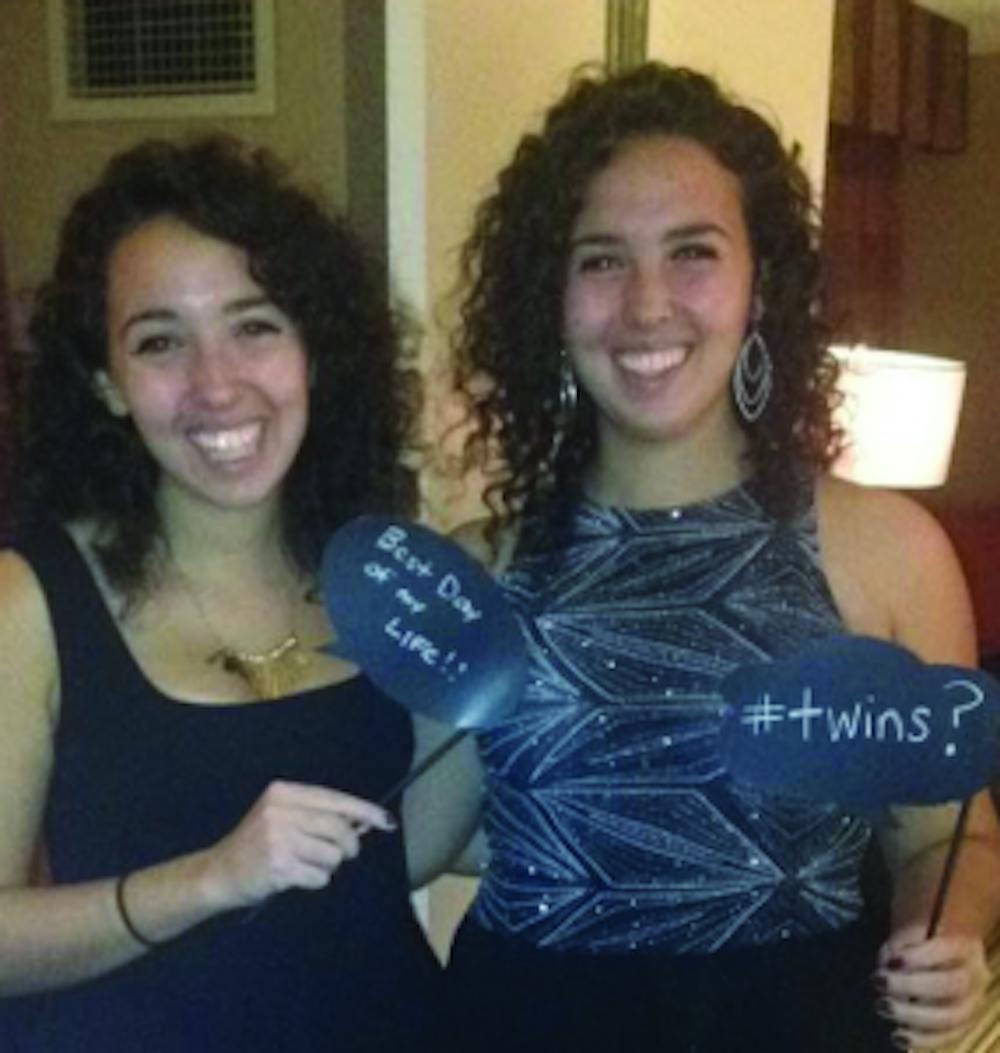We wore matching outfits. We shared a room. We even had bunkbeds. We watched Mary Kate and Ashley Olsen on VHS. It’s true: We did switch places to confuse our high school teachers.
Some tips to help you tell us apart? I’m taller by one inch, my face is shaped more like an oval and – as much as I hate to admit it – my voice is deeper.
I’m only technically older. Our mother, like many mothers of multiples, had a cesarean section, but explaining those details every time gets pretty uncomfortable. So, even though it sounds impossible, I say I’m a minute older.
These may seem like random facts, but these details make up my usual responses to questions about my life as an identical twin.
Don’t get me wrong, I enjoy these conversations. I appreciate anyone taking the time to learn what it’s like to be a twin. Because twins tend to fascinate people, I’ve used it as an icebreaker myself.
So it’s not really the questions; It’s the repetition itself. After 22 years, my sister, Kristine, and I can now predict what we’ll be asked. (Not to be mistaken as some twin superpower.) We recite responses designed to appease our enthusiastic interviewers. We even stand side by side so they can stare at our features, making it easier for them to compare and contrast.
The push and pull between these similarities and differences is what drives our relationship as twins.
On one hand, sharing the same qualities like age, appearance and interests has had its advantages. I’m grateful that I never had to go through important moments alone while growing up.
When most kids worried about making friends on the first day of school, I knew I could always talk to Kristine. We’ve continued to act as each other’s safety net as we’ve gotten older. Whenever there’s a lull at a party filled with people, we’ll end up as mirror images, sitting across a table telling each other jokes.
On the other hand, sharing experiences as a pair has put pressure on our identities. When I was younger, I struggled to appreciate being an identical twin without allowing it to define who I was.
Because we were always together, taking similar classes and rowing on the high school crew team, most people grouped us as the “Auble Twins.” I developed my own tendency to overlook the pronoun “I” and use the collective “we” out of habit.
I also remember agonizing over friendships. If we knew the same people, did we share friends? If not, whose friends were whose? Whenever this argument surfaced, I resented my sister more than any specific friend.
We both made small efforts to establish separate identities. I remember rushing back to the house on multiple occasions to change an outfit so people wouldn’t assume we had made an effort to match. Kristine also wanted to appear different and accumulated eight ear piercings.
When the time came to apply to college, we sent out applications without ever really deciding if we would or wouldn’t separate. Kristine had her heart set on the University of Maryland. I didn’t apply with her, but one of the many reasons I applied to Johns Hopkins was because we’d live in the same state, which actually ended up being the case.
After sharing a room for 18 years, I got a new roommate my freshman year at Hopkins. On top of dealing with the usual homesickness, my confidence plummeted without my sister at my side. More than ever, I wanted someone familiar to help me navigate through the awkward conversations and hectic orientation events. I hadn’t realized how much I depended on my twin relationship.
Despite my initial fears, persevering through this separation allowed me to find confidence in my own identity.
At first, I thought I just needed others to view me as an individual. Instead, I needed to convince myself that I could find my own path as a college student. I had no choice but to confront the question I had learned to avoid: Who am I without a twin?
The answer didn’t arrive right away, but persisting through these insecurities forced me to follow my interests. I joined The News-Letter and started throwing myself into the Hopkins community by reporting on all kinds of events. I studied alone, made new friends alone, and I now live alone in my own apartment.
I have even started to enjoy the solitude. Because people don’t initially see me as a twin, the comparisons that once put so much pressure on me have lifted. I have learned to identify as an individual instead of as part of a pair.
Now, whenever Kristine and I reunite, the stares surprise me. I forget that people see double when we pass by.
We’ll always look the same. We’ll still answer the same questions. If someone confuses us or calls us by the wrong name, we’ll probably both still smile and nod. But I know now that even though we thrive when we’re together, I can survive when we’re apart.





